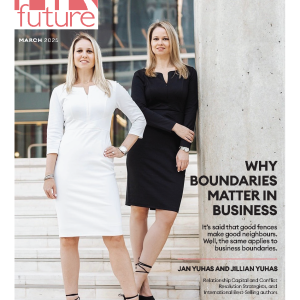Introduction to Future-Ready Business Education
The business world is evolving rapidly, and education must keep pace. As industries embrace digital transformation, automation, and global connectivity, business programs adapt to prepare students for future challenges. Schools focus on skills like data analysis, leadership in virtual teams, and ethical decision-making in a tech-driven environment. To stay competitive, future business leaders need a strong foundation in these areas and the ability to adapt to continuous change.
Online programs are key in making business education more accessible and flexible. For example, an Ohio online MBA allows working professionals to gain essential skills while balancing job responsibilities. Institutions like Youngstown State University are incorporating real-world problem-solving and technology-driven learning to equip students for leadership in a shifting business landscape.
The Role of Technology in Business Learning
Technology continues to revolutionize the educational landscape, particularly in business studies. Incorporating virtual classrooms, AI-powered analytics, and many online resources redefines how students consume information. These technological resources enable educators to adapt their instructional techniques to cater to each learner’s individual needs, enhancing the educational experience’s adaptability and personalization.
As students become more digitally literate, they are better equipped to thrive in technology-driven business environments. This adaptation also allows for a more interactive and collaborative learning experience, encouraging students to engage deeply with their studies and apply newfound knowledge in practical settings. The result is a learning environment that truly prepares students for the complexities of modern business.
Emphasizing Global Perspectives
Understanding diverse cultures and international markets has never been more crucial in an increasingly interconnected global economy. Business programs emphasizing global perspectives equip students with the tools to navigate complex international contexts effectively. By fostering an appreciation of cultural diversity and global economic trends, institutions help students develop essential skills vital for success in the international marketplace.
An education grounded in global perspectives enables graduates to approach business challenges with a broadened worldview. It allows them to engage meaningfully in multinational collaborations and transcend geographical boundaries to pursue innovative solutions.
Sustainability as a Core Component
As businesses worldwide increasingly adopt sustainable practices, integrating sustainability into business education has become crucial. Institutions that infuse sustainability within their curricula ensure graduates are prepared to lead environmentally and socially responsibly. This approach is paramount for nurturing responsible business leaders who harmonize long-term organizational success with ethical considerations.
Embedding sustainable practices into core business courses empowers students to navigate challenges related to resource scarcity, corporate social responsibility, and environmental impact. Such knowledge increasingly becomes a differentiator in the workforce, providing students with a competitive career edge.
The Rise of Soft Skills
While technical acumen remains essential, the modern business environment significantly emphasizes competencies such as communication, leadership, and adaptability—collectively known as soft skills. Business programs recognize this shift and prioritize developing these skills to prepare students for a collaborative and dynamic professional landscape.
Educational institutions develop vital soft skills by encouraging conversations, collaborative assignments, and networking events. This comprehensive educational strategy prepares students to lead teams, foster innovation, and swiftly adapt to workplace dynamics. Graduates become competent team players and emerging leaders in their respective fields.
Strategies for Educational Institutions
To remain relevant and competitive, educational institutions must evolve alongside industry trends, continually refining their offerings to meet changing needs. Collaborating with businesses to tailor course content and offering internships are key strategies that ensure programs remain vigorously connected to industry realities. Creating dynamic learning environments that promote innovation and exploration fosters student engagement and success.
Institutions that adopt a proactive approach to curriculum development thrive by aligning educational models with global economic and technological advancements. As these institutions shape the future workforce, their strategies must reflect a commitment to excellence, adaptability, and forward-thinking in education.
Guest writer


























